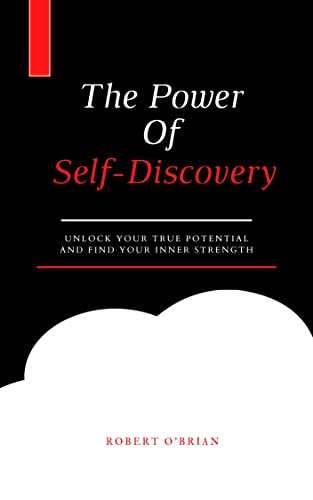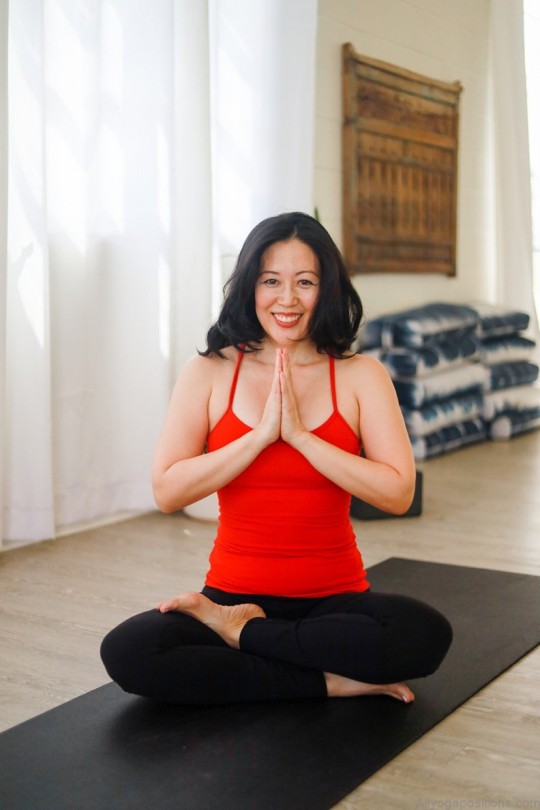#emotionalwell-being
Text
The Health Benefits of Vitamins and Minerals | Importance and Benefits
youtube
View On WordPress
#AgingGracefully#Emotionalwell-being#Healthbenefits#Healthbenefitsofminerals#Healthbenefitsofvitmins#HealthyAging#HumanLifeExpectancy#HumanLifeExpectancyIssues#HumanLifephysical#Maintainingindependence#Maintainourphysical#Mental#PositiveMindset#Youtube
2 notes
·
View notes
Text
Psychologists In Vidyranyapura | Psychology Counseling in bangalore
Psychology counseling in Bangalore, Vidyranyapura
Psychology counseling in Bangalore refers to the provision of therapeutic services by trained and licensed psychologists to individuals seeking support for mental health and emotional well-being in the city of Bangalore, India. These services can be provided in various settings, such as private practice offices, hospitals, clinics, or community centers.

Growminds goal of Psychologists In Vidyranyapura is to help individuals address and overcome psychological, emotional, and behavioral issues that may be causing distress or impacting their daily functioning. This can include but is not limited to anxiety, depression, stress, trauma, relationship problems, and personal growth.
In Bangalore, there are a variety of counseling services available, ranging from individual therapy to group counseling and family therapy. Some counselors may also specialize in specific areas, such as child and adolescent counseling, marriage and family therapy, or addiction counseling.
To receive counseling services in Bangalore, individuals can either self-refer or be referred by a doctor, family member, or friend. The initial session typically involves an assessment of the individual's needs and concerns, and a treatment plan is then developed in collaboration with the client.
Psychologists In Vidyranyapura can be a beneficial and effective form of support for those seeking help with their mental health. It provides a safe and non-judgmental space for individuals to explore their thoughts, feelings, and behaviour’s, and work towards positive changes and personal growth.

If you are in need of psychology counseling in Bangalore,it is important to do research and find a licensed and experienced psychologist who is a good fit for your specific needs and concerns. With the right support, you can overcome challenges and improve your overall well-being.
mental well-being in Vidyranyapura! Our team of skilled psychologists is dedicated to providing professional and personalized support to help you navigate life's challenges. Whether you're seeking assistance with stress, anxiety, relationships, or personal development, our psychologists bring a wealth of experience and expertise.
At our practice in Vidyranyapura, we prioritize creating a safe and nurturing environment where you can openly explore your thoughts and feelings. Our psychologists employ evidence-based therapeutic approaches to tailor sessions to your unique needs, fostering a collaborative and empowering journey towards positive mental health.
With a commitment to confidentiality and respect, our psychologists are here to guide you through self-discovery, self-improvement, and the development of coping mechanisms. By choosing our services, you're taking a proactive step towards holistic well-being.
Embark on a transformative experience with our psychologists in Vidyranyapura, where understanding, empathy, and support converge to empower you on your path to mental and emotional wellness. Your journey to a healthier mind starts here.
Please note that while I've highlighted Grow minds, individual preferences and requirements vary, so Psychologists In Vidyranyapura I recommend considering a consultation to ensure the approach Psychology Counseling in bangalore aligns with your needs. visit us at and call us: +91-6364-596-651
#PsychologistsInBangalore#PsychologyCounselinginbangalore#PsychologistsIn Vidyranyapura#counselingpsychology#counselingservices#mentalhealth#Psychologists Vidyranyapura#Psychology Counseling Bangalore#MentalHealthServices#EmotionalWell-being#OccupationalGuidance#EducationalCounseling#SocialConcernsSupport#HolisticPsychologicalServices#CounselingExperts#LifeBalanceConsultation
0 notes
Text
7 Steps to Self-Discovery: Unlock Your Inner Strength and Live a More Authentic Life


Unlocking Your Inner Strength: The Power of Self-Discovery
Exploring the Depths of Your True Potential
Embracing Vulnerability: The Key to Unlocking Inner Strength
Unleashing Your Passion: Discovering What Truly Inspires You
Overcoming Self-Limiting Beliefs: Breaking Free from Mental Barriers
Nurturing Self-Compassion: Building a Strong Foundation for Inner Strength
Harnessing Emotional Intelligence: Tapping into Your Inner Wisdom
Cultivating Resilience: Bouncing Back from Life's Challenges
Finding Balance: Honoring Your Needs and Prioritizing Self-Care
Embracing Change: Embodying Growth and Transformation through Self-Discovery
Unlocking Your Inner Strength: The Power of Self-Discovery
One of the benefits of self-discovery is increased self-awareness. When we understand ourselves better, we can make more informed decisions about our lives. We become aware of our values, beliefs, and desires, which allows us to align our actions with what truly matters to us. This leads to a greater sense of fulfillment and satisfaction in life.
Exploring the Depths of Your True Potential
To uncover your true potential, it is important to delve deep within yourself. This involves engaging in self-reflection and introspection. Take the time to ask yourself meaningful questions such as "What are my strengths?" "What are my passions?" "What are my values?" "What brings me joy?" Reflect on your past experiences and identify patterns or themes that have emerged. Pay attention to your emotions and how they guide you towards what truly resonates with you.
There are several exercises that can help facilitate self-reflection and introspection. Journaling is a powerful tool that allows you to explore your thoughts and emotions. Write freely without judgment and let your thoughts flow onto the paper. Another exercise is creating a vision board. Gather images, words, and quotes that represent your goals, dreams, and aspirations. Arrange them on a board and display it somewhere you can see it every day. This visual representation will serve as a reminder of what you are working towards.
Embracing Vulnerability: The Key to Unlocking Inner Strength
Vulnerability is often seen as a weakness, but in reality, it is the key to unlocking inner strength. When we allow ourselves to be vulnerable, we open ourselves up to new experiences, connections, and growth. It takes courage to be vulnerable and expose our true selves to others, but it is through this vulnerability that we can truly connect with others and build meaningful relationships.
To embrace vulnerability, it is important to overcome the fear of judgment. Understand that everyone has their own insecurities and fears, and most people are too preoccupied with their own lives to judge you harshly. Surround yourself with supportive and non-judgmental people who will encourage and uplift you. Practice self-compassion and remind yourself that it is okay to make mistakes and show vulnerability.
Unleashing Your Passion: Discovering What Truly Inspires You
Passion is the fuel that drives us towards our goals and dreams. It is what gives us a sense of purpose and fulfillment in life. Discovering our passions requires self-exploration and experimentation. Pay attention to the activities that bring you joy and energize you. What are the things that you could spend hours doing without getting bored? What topics or subjects do you find yourself constantly researching or talking about? These are clues that can help you uncover your passions.
Once you have identified your passions, it is important to cultivate them. Make time for activities that align with your passions and bring you joy. Surround yourself with like-minded individuals who share your interests. Seek out opportunities to learn and grow in your chosen field. By pursuing your passions, you will find a sense of purpose and fulfillment that will enrich your life.
Overcoming Self-Limiting Beliefs: Breaking Free from Mental Barriers
Self-limiting beliefs are negative thoughts or beliefs that hold us back from reaching our full potential. They are often rooted in fear and can prevent us from taking risks, pursuing our dreams, or stepping outside of our comfort zones. Common self-limiting beliefs include "I'm not good enough," "I don't deserve success," or "I'm too old/young to start something new."
To overcome self-limiting beliefs, it is important to challenge them and replace them with more empowering thoughts. Start by identifying the self-limiting beliefs that are holding you back. Write them down and examine the evidence for and against these beliefs. Are they based on facts or are they simply assumptions? Replace these negative thoughts with positive affirmations and remind yourself of your strengths and accomplishments.
Nurturing Self-Compassion: Building a Strong Foundation for Inner Strength
Self-compassion is the practice of treating oneself with kindness, understanding, and acceptance. It involves acknowledging our flaws and mistakes without judgment and offering ourselves the same compassion we would offer to a loved one. Self-compassion is crucial for self-discovery as it allows us to embrace our imperfections and learn from our failures.
To practice self-compassion, it is important to be kind to ourselves and treat ourselves with the same care and understanding we would offer to a friend. Practice self-care by engaging in activities that bring you joy and relaxation. Take time to rest and recharge when needed. Be mindful of your self-talk and replace negative thoughts with positive affirmations. Remember that self-compassion is not about being self-indulgent or selfish, but rather about nurturing your well-being and building a strong foundation for inner strength.
Harnessing Emotional Intelligence: Tapping into Your Inner Wisdom
Emotional intelligence is the ability to recognize, understand, and manage our own emotions as well as the emotions of others. It plays a crucial role in self-discovery as it allows us to tap into our inner wisdom and make more informed decisions. By developing emotional intelligence, we can better understand our own needs, desires, and motivations.
To develop emotional intelligence, it is important to practice self-awareness. Pay attention to your emotions and the triggers that cause them. Take the time to reflect on your emotional responses and identify patterns or themes. Practice empathy by putting yourself in someone else's shoes and trying to understand their perspective. Develop effective communication skills by expressing your emotions in a healthy and constructive way.
Cultivating Resilience: Bouncing Back from Life's Challenges
Resilience is the ability to bounce back from setbacks, adapt to change, and thrive in the face of adversity. It is an essential trait for self-discovery and personal growth as it allows us to overcome obstacles and learn from our failures. Cultivating resilience involves developing a growth mindset, practicing self-care, seeking support from others, and reframing challenges as opportunities for growth.
To build resilience, it is important to develop a growth mindset. Embrace challenges as opportunities for learning and growth rather than viewing them as threats or failures. Practice self-care by engaging in activities that promote physical, mental, and emotional well-being. Seek support from friends, family, or a therapist when needed. Surround yourself with positive and supportive people who will uplift and encourage you.
Finding Balance: Honoring Your Needs and Prioritizing Self-Care
Finding balance is crucial for self-discovery and personal growth. It involves honoring your needs and prioritizing self-care. When we neglect our own well-being, we become depleted and unable to show up fully in our lives. By finding balance, we can better manage our time, energy, and resources, leading to increased productivity and fulfillment.
To find balance, it is important to prioritize self-care. Make time for activities that bring you joy and relaxation. Set boundaries and learn to say no when necessary. Practice time management by prioritizing tasks and delegating when possible. Take breaks throughout the day to rest and recharge. Remember that finding balance is an ongoing process and requires regular self-reflection and adjustment.
Embracing Change: Embodying Growth and Transformation through Self-Discovery
Change is inevitable in life, and embracing it is essential for personal growth and transformation. Self-discovery allows us to embrace change by helping us understand our values, desires, and goals. It allows us to let go of what no longer serves us and embrace new opportunities for growth.
To embrace change, it is important to adopt a growth mindset. View change as an opportunity for learning and growth rather than something to be feared or resisted. Practice self-compassion and be gentle with yourself during times of transition. Surround yourself with supportive people who will encourage and uplift you. Remember that change is a natural part of life and can lead to personal transformation if embraced with an open mind and heart.

elf-discovery is a lifelong journey of exploration and growth.
It is the process of uncovering our true selves, our passions, our goals, and our values. It is an opportunity to explore our innermost thoughts and feelings, to learn more about our unique gifts and talents, and to uncover our purpose in life.

Procrastination, the habit of delaying tasks that need to be done, is something that affects many people. It doesn’t matter if you’re young or old, a student or a worker – procrastination can make it hard to finish things on time. It can even make you feel stressed and unhappy because you’re not getting as much done as you want.

What are goals? How to establish SMART objectives Setting goals is the first step towards turning your dreams into reality. Goals are the specific outcomes you want to achieve, giving your actions purpose and direction. Whether it’s personal or professional, clear goals provide focus and motivation. They act as a roadmap, guiding you through the journey of success.
Read the full article
#Emotionalwell-being#forgiveness#innerstrength#mindfulness#Resilience#self-acceptance#self-care#self-compassion#self-compassionpractices#self-kindness
0 notes
Text
The Step-by-Step Meditation Journey: How to Build Inner Peace

Introduction
Meditation is an ancient practice that has been used for thousands of years to help cultivate inner peace, relaxation, and an overall sense of well-being. In recent years, the practice of meditation has seen a resurgence in popularity as more people recognize the many benefits that it can offer. Meditation can be used to help reduce stress and anxiety, improve concentration, and promote a sense of inner balance and harmony.
The process of meditation involves a journey of self-exploration and self-discovery that can be extremely rewarding and transformative. This journey begins with the decision to make meditation a part of your life and build a foundation for your practice. By creating a sacred space for your practice, developing an awareness of your breath, and learning the differences between guided and self-guided meditation, you can begin to take the first steps on your journey towards inner peace.
Meditation can be beneficial in many ways, from physical health to mental and emotional wellbeing. Regularly engaging in a meditation practice has been shown to reduce stress and anxiety, improve concentration and focus, and promote feelings of joy, contentment, and inner peace. Meditation can also be used to cultivate compassion towards oneself and others, as well as a greater appreciation of life and the world around us.
By taking the time to create a successful meditation journey, you can reap the many benefits that this practice has to offer. In this article, we will explore the various aspects of meditation and discuss how to create the foundation for a successful meditation journey. We will discuss how to create a sacred space for your practice, the importance of breath awareness, the differences between guided and self-guided meditation, and tips for successful meditation. Through this exploration, you can learn how to unlock the power of meditation and truly experience the richness and beauty of this ancient practice.
Creating a Sacred Space
Have you ever wondered why monks and dedicated yogis make such an effort to meditate within a specific space? The answer is the environment itself. When you create a dedicated space for meditation, it helps your practice. Using the same space for meditation each time creates a sense of familiarity and comfort which allows you to enter a meditative state with ease.
What Is A Sacred Space?
A sacred space is a space that has been devoted to a particular purpose. It could be a corner of your bedroom or living room, or an outdoor area that is special to you. The space should be free from distractions, with minimal furniture, and a pleasant atmosphere.
How To Prepare A Space For Meditation
Here are a few tips for creating a peaceful and inviting meditation space:
1. Lighting – Make sure the space is well lit, as this will help you to feel comfortable and relaxed. Avoid any harsh or glaring lights. Candles or dimmed lighting are both great options.
2. Decor – Choose calming colors and decorations that reflect your style and personality, such as a painting, a special rug, or a piece of furniture.
3. Comfort – Make sure the space is comfortable and inviting. Add a meditation pillow or cushion, a blanket, or a cozy chair.
Benefits Of Creating A Sacred Space
There are numerous benefits to creating a sacred space for meditation. Here are just a few:
1. Focused Attention – Having a designated space for meditation helps to keep you focused and allows you to go deeper into the practice.
2. Comfort and Relaxation – Creating a sacred space that is comfortable and inviting helps to create a sense of relaxation and ease, which is necessary for successful meditation.
3. Clarity and Insight – When you meditate in the same space each time, your practice can become more powerful and insightful as you become more familiar with the space and its energy.
4. Setting Intentions – Having a dedicated space for meditation can help to focus your intentions and ensure that the purpose and outcome of each practice is clear.
Creating a sacred space for meditation is a powerful way to deepen your practice and create a sense of peace and calm. By following these tips and creating a comfortable and inviting atmosphere, you can create a space that will help you to reach new depths in your meditation journey.
Breath Awareness and its Vital Role in Meditation
Breath awareness plays a central role in meditation and can be a powerful tool for cultivating inner peace. The practice of breath awareness involves becoming more mindful of your breathing and focusing your attention on the sensation of your breath as it moves in and out of your body. Becoming aware of your breath can help to ground you in the present moment and can be a powerful tool for cultivating self-awareness and stillness.
The key to utilizing breath awareness in meditation is to focus your attention on the sensations of your breath. This requires that you become more mindful of your breathing and observe the movement of air as it enters and exits your body. To help you become more aware of your breath, it is helpful to place your hands on your abdomen and focus on the rise and fall of your chest and abdomen as you breathe. Doing this encourages slow and deep abdominal breathing and helps to reduce stress and anxiety.
When you are aware of your breath, you can use it to enter a meditative state. To do this, you can consciously slow down your breathing and focus your attention on the sensation of your breath as it moves through your body. By doing this, your body will relax and you will begin to enter a meditative state. This can be done either sitting or lying down, and can be done on its own or in conjunction with a mantra or visualization.
The importance of breath for meditation cannot be overstated. Breath awareness helps to bring the mind and body into a state of coherence and can be used to help you cultivate a greater sense of peace and presence. It also helps to reduce stress and anxiety by helping to bring the body and mind into a relaxed state. Finally, breath awareness can help to deepen and sustain your meditation practice, as it provides an anchor for your attention and helps you maintain focus and clarity throughout your practice.
Ultimately, breath awareness is a vital part of any successful meditation journey. Becoming mindful of your breath can help to cultivate inner peace and can be a powerful tool for helping you to relax and enter into a meditative state. Additionally, breath awareness can help to deepen and sustain your meditation practice, as it provides an anchor for your attention and helps you stay focused and relaxed.

Guided vs. Self-Guided Meditation
When it comes to meditation, there is no one-size-fits-all approach. Different people find different methods more effective, depending on their individual needs and preferences. Whether you are a seasoned meditator or just starting out, it is important to understand the differences between guided and self-guided meditation and how each option can help you create your own unique meditation journey.
The first difference between guided and self-guided meditation is that guided meditation is done with the help of an instructor or facilitator. This person will guide you through the meditation process, providing verbal instruction and cues as well as visual and auditory aids. The benefit of guided meditation is that it facilitates a deep relaxation response and provides structure and support. This can be especially helpful for people who are new to meditation or have difficulty getting started.
On the other hand, self-guided meditation is done without the assistance of an instructor. Instead, you are responsible for setting your own intentions, choosing what type of meditation to practice, and creating your own visualizations. The benefit of self-guided meditation is that it gives you complete freedom to explore different techniques and customize your meditation session to your individual needs.
When it comes to guided vs self-guided meditation, both have distinct benefits. Guided meditation helps give structure to the practice, while self-guided meditation encourages freedom and creativity. Ultimately, it is up to you to decide what type of meditation works best for you.
In terms of the steps involved in each type of meditation, the basic process is the same. You will begin by creating a comfortable, quiet space to meditate. Then, you will focus your attention on your breath, allowing yourself to relax and become more present. Once you reach a calmer state, you can either begin a guided meditation session with an instructor or practice a self-guided meditation technique.
When it comes to guided meditation, the instructor will provide verbal instruction and cues, as well as visual and auditory aids. The instructor will also guide your practice, giving you a roadmap for where to focus your attention. With self-guided meditation, you can explore different techniques at your own pace. You may choose to visualize your breath, practice mindfulness, or explore any other type of meditation technique that resonates with you.
Regardless of which type of meditation you choose, the important thing to remember is that consistency is key. To get the most out of your practice, it is important to stick to a regular schedule and make sure you have enough time to explore and experiment with different meditation techniques. Taking the time to explore guided and self-guided meditation can be a powerful way to deepen your practice and cultivate inner peace.
Tips for Successful Meditation
Meditation is an incredibly powerful tool for achieving inner peace and having a more fulfilling life. However, it is not something that can be mastered overnight and requires patience and dedication. There are many tips that you can follow to ensure that you have a successful meditation journey.
Setting an Intention Before Meditating
Before you begin your meditation journey, it is essential to set an intention. To do this, take a few moments to focus on what it is that you wish to achieve from your meditation session. Consider what it is that you want to bring into your life as a result of your meditation. This could be physical, mental, spiritual, or emotional. By setting an intention, you will be more likely to achieve the desired outcome of the meditation.
Sticking to a Meditation Practice
Once you have set your intention, it is important to establish a daily meditation practice. Even if it’s only for a few minutes each day, it is important to keep up your practice in order to ensure that you make progress in your journey. Try to make it a habit and instead of seeing it as a chore or something that you have to do, view it as an opportunity to give yourself time and space.
Letting go of Expectations
It is also important to remember to let go of expectations. Everyone’s experience of meditation is different, so try not to compare yourself to anyone else. It is also essential to be patient, as it may take some time before you start to experience the full benefits of meditation.
Trying Different Techniques
There are many different techniques in meditation, so it can be helpful to try out different approaches to find what works best for you. Experiment with different poses and breathing techniques until you find what is most comfortable for you. Additionally, there are many guided meditations available online and on streaming services that can help to get you started.
Making Time to Meditate
Finally, it is important to make time for your meditation practice. It is easy to get caught up in life and neglect to take care of ourselves. Take the time each day to give yourself a few minutes of inner peace and quiet. This will help to ensure that you have a successful meditation journey.
By following these tips, you will be able to create a successful meditation journey. From setting an intention before meditating to making the time to practice, these tips will help to ensure that you make the most of your meditation journey. With patience and dedication, you will soon be on your way to achieving inner peace and a more fulfilling life.

Conclusion
Meditation is a journey that can transform your life and bring inner peace and balance. With the right steps, anyone can make their meditation journey successful.
The first step is creating a sacred space, which can help you feel more connected and comfortable with your practice. This space should be free of distractions and have calming elements that help you achieve a meditative state. Once the space is prepared, you can begin to focus more on your breath. Breath awareness is essential for meditation, as it allows you to become more present and mindful. Additionally, it can help you enter and maintain a meditative state.
To make the most out of your meditation journey, you can also choose between guided and self-guided meditation. Guided meditation allows you to be guided by someone else, while self-guided meditation involves setting your own intention and practice. Both have their benefits, so you can select the one that is best for you.
Finally, to ensure success in your meditation, it is important to set an intention before meditating, stick to a routine, and let go of expectations. Every meditation is unique and requires patience and self-compassion.
In conclusion, meditation can be an incredibly powerful and transformative journey. By creating a sacred space, focusing on your breath, understanding the difference between guided and self-guided meditation, and setting an intention, you can start to make your meditation journey successful and find inner peace.
Join the Realty Banker Network and stay ahead of the competition. Connect with us on
Youtube, Facebook, TikTok, Instagram and Twitter. We hope to see you there.

Read the full article
#AlternativeMedicine#AyurvedicMedicine#ChakrasandEnergy#ChineseMedicine#DailyYogaPractice#EmotionalWell-Being#HolisticHealth#HolisticNutrition#IntuitiveLiving#MeditationforWellness#Mind-BodyConnection#Mindfulness#Plant-BasedDiet#RelationshipWellness#SpiritualGrowth#StressManagement#TherapeuticMassages#VeganNutrition#YogaandFitness
0 notes
Link
0 notes
Link
#amazonite#bathandbodyproducts#bluecalcite#chrysocolla#cobaltoancalcite#crystalgrids#CrystalHealing#crystalhomedecor#crystaljewelry#crystal-infusedproducts#emotionalbalance#emotionalhealing#emotionalwell-being#greenaventurine#holisticwellness#innerpeace#innerstrength#Lepidolite#meditationcrystals#mindfulnesspractices#moonstone#obsidian#orangecalcite#PinkAmethyst#positiveenergy#positivevibes#Rosequartzcrystals#self-care#self-discovery#serenity
0 notes
Text
How to Forgive Yourself: A Guide to Healing and Self-Acceptance

Forgiving yourself can be one of the most challenging but transformative acts of self-love and growth. We all make mistakes, face failures, and carry regrets. However, dwelling on past actions or decisions can hinder our personal development and prevent us from moving forward. Learning to forgive ourselves is essential for emotional well-being and achieving self-acceptance. In this blog, we will discuss practical strategies on how to forgive yourself and pave the way for a healthier and happier future.
Have you ever found yourself caught in the trap of self-blame and regret, replaying past mistakes in your mind, unable to let go? It's a common struggle many of us face. But here's the thing: you deserve to break free from the shackles of guilt and embrace a life of self-compassion and growth.
In this comprehensive guide, we'll explore effective techniques to help you navigate the intricate path of self-forgiveness. Together, we'll uncover the power within you to heal and accept yourself fully. So, let's embark on this transformative journey, leaving behind the weight of the past and embracing a brighter future.
Step 1: Acknowledge your mistakes
Acknowledging your mistakes is the first step towards self-forgiveness. It requires taking the time for self-reflection and introspection. Allow yourself to delve deep into the past and confront the specific mistakes you have made. Be honest with yourself and resist the urge to minimize or deny your actions. By writing down your mistakes and their consequences, you are confronting them head-on, taking ownership of your past behavior.
This process can be uncomfortable and emotionally challenging, but it is necessary for growth and healing. Acknowledging your mistakes means accepting the reality of what you have done and recognizing the impact those actions had on yourself and others. It is a crucial step towards self-awareness and laying the foundation for genuine forgiveness.
Step 2: Embrace self-compassion
Once you have acknowledged your mistakes, it is time to embrace self-compassion. Treat yourself with the same kindness and understanding you would offer to a close friend who is going through a difficult time. Practice self-care and self-compassionate language in your thoughts and inner dialogue. Remind yourself that making mistakes is an inherent part of being human and does not define your worth or character.
Cultivating self-compassion involves nurturing a mindset of empathy and understanding towards yourself. Replace self-criticism with self-compassionate thoughts and affirmations. Remind yourself that everyone makes mistakes and that you are deserving of forgiveness and love. By embracing self-compassion, you create a supportive and nurturing environment within yourself, which paves the way for healing and self-acceptance.
Step 3: Reflect and learn from your mistakes
Reflecting on your mistakes is a crucial step in the forgiveness process. It involves taking the time to analyze the circumstances that led to your actions or decisions. Explore the factors that influenced your behavior and decision-making. By gaining a deeper understanding of the underlying causes, you can start to identify patterns and triggers that contributed to your mistakes.
Through reflection, you can evaluate alternative choices or actions that could have been made in those situations. Consider how you could have handled the circumstances differently and the potential outcomes that might have resulted. Reflecting on your mistakes allows you to gain insight and learn valuable lessons from the experience. It provides an opportunity for personal growth and development as you strive to make better choices in the future.
Remember, the goal of reflection is not to dwell on past mistakes or wallow in regret. Instead, it is about understanding the root causes, learning from them, and using that knowledge to move forward and make positive changes in your life.
Step 4: Seek forgiveness from others if necessary
If your actions have caused harm to others, it is essential to take responsibility and seek forgiveness. Begin by assessing the impact of your behavior on those affected. Put yourself in their shoes and try to understand the pain or discomfort they may have experienced as a result of your actions. This exercise in empathy will help you develop a genuine sense of remorse and accountability.
Apologize sincerely to those you have hurt. Express your regret and acknowledge the pain you may have caused. Show empathy and understanding toward their feelings. Be open to listening and learning from their perspective, even if their forgiveness is not immediate or guaranteed. Understand that forgiveness is a personal journey for both parties involved, and it may take time.
It is important to remember that seeking forgiveness from others should not be the sole basis for your self-forgiveness. While receiving forgiveness can be healing, it is crucial to recognize that your own growth and healing should not depend solely on the response of others. Even if forgiveness is not granted, you can still embark on the path of self-forgiveness and work towards becoming a better person.
Step 5: Let go of guilt and regret
Guilt and regret can weigh heavily on your shoulders, hindering your ability to forgive yourself. It is essential to allow yourself to feel these emotions, acknowledging their presence and the lessons they carry. However, dwelling on guilt and regret for an extended period can be detrimental to your well-being.
Consciously choose to let go of the burden of guilt and regret. Recognize that you are not defined solely by your past mistakes. Shift your focus towards self-forgiveness and growth. Instead of being consumed by remorse, view your past actions as opportunities for learning and personal development.
Challenge negative self-talk and replace it with self-compassion. Remind yourself that you are human, capable of change and growth. Focus on the present moment and the steps you are taking toward self-forgiveness. Embrace the concept of a fresh start, leaving behind the weight of the past and embracing a brighter future.
Remember, letting go of guilt and regret is a process that requires patience and self-compassion. Be gentle with yourself as you navigate this journey of self-forgiveness. Each day, reaffirm your commitment to release the past and embrace the freedom and peace that forgiveness brings.
Step 6: Practice self-care rituals
Self-forgiveness involves developing a healthy and nurturing relationship with yourself. Prioritize self-care rituals that promote your physical, mental, and emotional well-being. Engage in activities that bring you joy and fulfillment. Dedicate time to hobbies or interests that allow you to express yourself and find solace.
Connect with loved ones who support and uplift you. Surround yourself with people who believe in your ability to grow and change. Share your journey towards self-forgiveness with trusted individuals who can provide guidance, empathy, and encouragement.
Take care of your physical health by prioritizing exercise, proper nutrition, and restful sleep. Engage in self-care practices that resonate with you, such as meditation, journaling, or spending time in nature. These rituals will nourish your mind, body, and soul, reinforcing your self-worth and creating a foundation of self-acceptance.
By making self-care a priority, you cultivate a positive and nurturing environment within yourself. It becomes easier to practice self-forgiveness and embrace the journey of healing and growth.
Step 7: Seek support from a trusted individual
Embarking on the path of self-forgiveness can be challenging, and seeking support from a trusted individual can provide valuable insights and guidance. Share your struggles and journey with someone you trust, such as a close friend, family member, or therapist. Opening up about your experiences allows for a deeper understanding of your emotions and challenges.
A supportive listener can offer a fresh perspective, empathy, and validation. They can guide you through the process of self-forgiveness, providing encouragement and support along the way. Choose someone who will be non-judgmental, compassionate, and willing to accompany you on your healing journey.
Remember, seeking support is not a sign of weakness but a testament to your strength and commitment to self-growth. Together, you can navigate the complexities of forgiveness, gain new insights, and find solace in the knowledge that you are not alone.
Conclusion:
Forgiving yourself is a powerful act of self-love, acceptance, and growth. It allows you to release the heavy burden of guilt and regret and embrace a future built on self-compassion and personal development. Remember that forgiving yourself is a process that takes time and effort. Be patient and gentle with yourself along the way, and you will eventually find the healing and peace you seek.
Now, let's embark on this transformative journey together. By implementing the strategies and techniques we have discussed in this blog, you can take the first steps toward forgiving yourself, healing emotional wounds, and embracing a life filled with self-acceptance, growth, and happiness. Get ready to unlock the power of self-forgiveness and create a brighter future.
Looking to take your personal development journey even further?
Check out "The Mental Time Travel System," an extraordinary program. Drawing upon decades of experience in hypnosis and metaphysics, as well as cutting-edge concepts like Brief Therapy and Narrative Psychology, this system goes beyond anything you've ever encountered before.
Through profound insights and effective methods, "The Mental Time Travel System" unlocks the secrets of the Universe, offering you the tools to manifest anything you desire, including "The Big 3." If you're ready to take your manifestations to new heights and create a life of abundance and fulfillment, this program is a must-have resource.
Please note that by using the affiliate link provided, you support our website at no additional cost to you. Take the next step on your personal development journey and explore "The Mental Time Travel System" today!
Disclaimer: We may receive a commission for purchases made through this affiliate link.
I hope this blog has inspired you to learn more about public speaking and to consider giving it a try
Are you ready to take your life to the next level?
If you’re looking for ways to improve your happiness, productivity, relationships, or overall well-being, then you need to check out our self-help and self-improvement blog.
We’ve got articles on everything from breaking bad habits to setting and achieving your goals. We’ll also help you find your purpose in life and learn how to live a more mindful and intentional life.
So what are you waiting for? Start reading the Personal Development and WEALTH BUILDING categories today and see how you can transform your life!
Read the full article
#emotionalwell-being#forgiveyourself#forgiveyourselfaffirmations#forgiveyourselfjourney#forgiveyourselfprocess#forgiveyourselfquotes#guilt#healfrompastmistakes#healing#howtoforgiveyourself#letgoofguiltandregret#mentalhealth#moveonfrompastmistakes#personaldevelopment#personalgrowth#practiceself-compassion#psychology#regret#seeksupportfromothers#self-acceptance#self-compassion#self-forgiveness#self-forgivenesstips
0 notes
Text
Exploring the Half Moon Yoga Pose: Balance, Strength, and Inner Harmony

Exploring the Half Moon Yoga Pose: Balance, Strength, and Inner Harmony
Read the full article
#Alignment#Balance#Breath#EmotionalWell-being#HalfMoonYogaPose#InnerHarmony#MentalWell-being#Modifications#PhysicalBenefits#Preparations#Step-by-stepguide#Strength#Tips#Variations
0 notes
Link
#anxietymanagement#copingstrategies#Counselingservices#couplescounseling#depressiontreatment#emotionalwell-being#familytherapy#griefandlosstherapy#individualcounseling#mentalhealthresources#mentalhealthsupport#mindfulnesspractices#onlinecounseling#personalgrowth#relationshipcounseling#self-improvement#stressrelief#therapysessions#traumacounseling#wellnesstips.
0 notes
Text
#Positivethinking#Gratitude#Resilience#Self-improvement#Mindfulness#Motivation#Self-confidence#Self-esteem#Personalgrowth#Happiness#Success#Productivity#Emotionalwell-being#Mentalhealth#Stressmanagement#Lifesatisfaction#Self-care#Optimism#Goalsetting#positivepsychology
1 note
·
View note
Text
The Health Benefits of Vitamins and Minerals | Importance and Benefits
youtube
#AgingGracefully#HealthyAging#PositiveMindset#Healthbenefitsofvitmins#Healthbenefitsofminerals#Healthbenefits#HumanLifeExpectancyIssues#HumanLifeExpectancy#HumanLifephysical#Mental#Emotionalwell-being#Maintainingindependence#Maintainourphysical#Youtube
1 note
·
View note
Photo

Psychology Counseling in bangalore - Expert Psychologists in Vidyranyapura Offering Tailored Mental Health Support (on Wattpad) https://www.wattpad.com/1419156744-psychology-counseling-in-bangalore-expert?utm_source=web&utm_medium=tumblr&utm_content=share_reading&wp_uname=growminds Psychological counseling in Bangalore addresses emotional, occupational, educational, social, and developmental concerns for individuals across all age groups. Our team of psychologists in Vidyranyapura <a href=" https://www.growminds.co.in/psychology-counseling/"> psychology-counseling </a> is dedicated to providing comprehensive support and guidance.
#bangalore#counseling#educational#emotionalwell-being#mentalhealthservices#psychological#psychologists#vidyranyapura#short-story#books#wattpad#amreading#PsychologistsInBangalore PsychologyCounselinginbangalore PsychologistsIn Vidyranyapura counselingpsychology counselingservices mentalhe
0 notes
Text
Grandma Knows Best is a non-profit approach to culturally relevant mental health wellness.
As an Elder academic who is completing a late education my purpose has always been to enrich.
#emotionalwellness#emotional well being#mental health#coping skills#eldervision#copingtherapy#culturallyappropriatetherapy#anxiety therapy#mental heath support#mentalhealthawareness
1 note
·
View note
Text
Emotions Unpacked: A Fun Guide to Understanding Your Feels
Hey there! Ever wonder why you feel the way you do? Or have someone say "You're so emotional?" which isn't a bad thing by the way! Let's dive into the colorful world of emotions together - it's not as complicated as you might think.

Emotions vs. Mood: What's the Difference? Think of emotions as those quick, vivid flashes of feelings, like the annoyance at your friend bailing on dinner. Moods, on the other hand, are more like the background music of your day - they stick around longer and can be a bit more elusive. They're both intertwined, making the tapestry of our inner world.
Thoughts, Feelings, and Emotions: The Trio of Intrigue Our thoughts and emotions are BFFs that influence each other more than we realize. Ever felt regret? That's your thoughts and emotions doing a tango. And feelings? They're the umbrella term that covers both our physical sensations (like hunger) and our emotional states (like being over-the-moon happy).
The Superpowers of Emotional Intelligence Emotional intelligence is like having a secret weapon for life. It’s all about understanding and managing our emotions and those of others. From reading the room to handling our own inner storms, emotional intelligence is your guide to a smoother sail through social seas and personal challenges.
The Yin and Yang of Emotions We often focus on dodging negative emotions and chasing the positive ones, but guess what? We need both. Fear might save us from danger, while joy could lead us to life’s greatest pleasures. Balancing these emotions is key to a rich, full life.
Can You Catch Feelings? Literally? Yep, emotions are contagious! Ever felt a room's mood shift when someone walks in? That's emotional contagion. But don't worry; you can learn to manage this superpower for the good, helping both yourself and others maintain emotional balance.
The Foundation of Emotional Health Good emotional health is like a well-tended garden; it needs regular care. This means managing our emotions, yes, but also looking after our physical wellbeing with healthy habits. It turns out, what's good for the body is good for the soul (and your emotional garden).
Feeling intrigued? This is just the tip of the iceberg! Dive into the fascinating world of emotions with me, and let's explore together how understanding our emotions can lead to a happier, healthier life. Don't forget, staying emotionally healthy is a journey, not a sprint. Let's enjoy the ride together!
Stay Weird & Wonderful,
Krystal
Curious to learn more? Don’t just sit there; dive deeper into the emotional rabbit hole with my newsletter for more fun insights and tips to keep your emotional garden flourishing!
#mindfulness#empowerment#self improvement#emotionalwellness#emotional well being#emotions#mental health#art as therapy#emotional#feelings#selfawareness#personal growth#personal development#wellbeing journey#wellness
0 notes
Video
youtube
🌀 Heavy Healing 424Hz Manifesting Inner Peace 🎶💫 Indulge in the harmonious depths of "Heavy Healing 424Hz" curated by Mahtuta, where the fusion of powerful melodies and serene frequencies guides you towards manifesting inner peace. 🌀🎶💫Mahtuta's compositions resonate at 424Hz, creating a sanctuary of sound that heals and rejuvenates, offering solace to weary souls seeking tranquility in a chaotic world. 🌿🌌With each note, feel the weight of the world lift as the heavy healing vibrations penetrate deep into your being, releasing tension and restoring balance to mind, body, and spirit. 🕊️✨Allow Mahtuta's music to be your compass as you navigate the labyrinth of your inner landscape, guiding you towards a state of profound calm and serenity. 🌈🙏Embrace the transformative power of "Heavy Healing 424Hz" as Mahtuta's melodies transport you to a realm of peace and harmony, where inner tranquility is not just a dream but a tangible reality. 🌟💖#HeavyHealing #InnerPeace #MahtutaMagic #Harmony #Tranquility #Serenity #Mindfulness #Relaxation #SoothingSounds #SpiritualJourney #SelfCare #HealingMusic #VibrationalHealing #EmotionalWellness #PositiveVibes #Calmness #MindBodySpirit #MusicTherapy #ManifestingPeace #HealingVibes #SoulfulMusic #RelaxationStation #CalmYourMind #PeacefulVibes #StressRelief #HarmonicHealing #SpiritualAwakening #ChillVibes #MentalHealthMatters #ZenMode
0 notes
Text
6 Best Ways On How To Heal from a Breakup
Elevate your healing journey with the 6 best ways to recover from a breakup! Discover strategies to nurture emotional well-being and find closure after the end of a relationship. #BreakupRecovery #HealingJourney #EmotionalWellness #SelfCare
Breakups can feel like sudden storms, leaving us drenched in emotions and searching for shelter. But just like any storm, the sun eventually shines through, bringing warmth and new beginnings. If you’re navigating the aftermath of a breakup, here’s a friendly guide to help you find your sunshine.
Embrace Your Feelings
First and foremost, it’s okay to feel. Whether it’s sadness, anger, or…

View On WordPress
0 notes